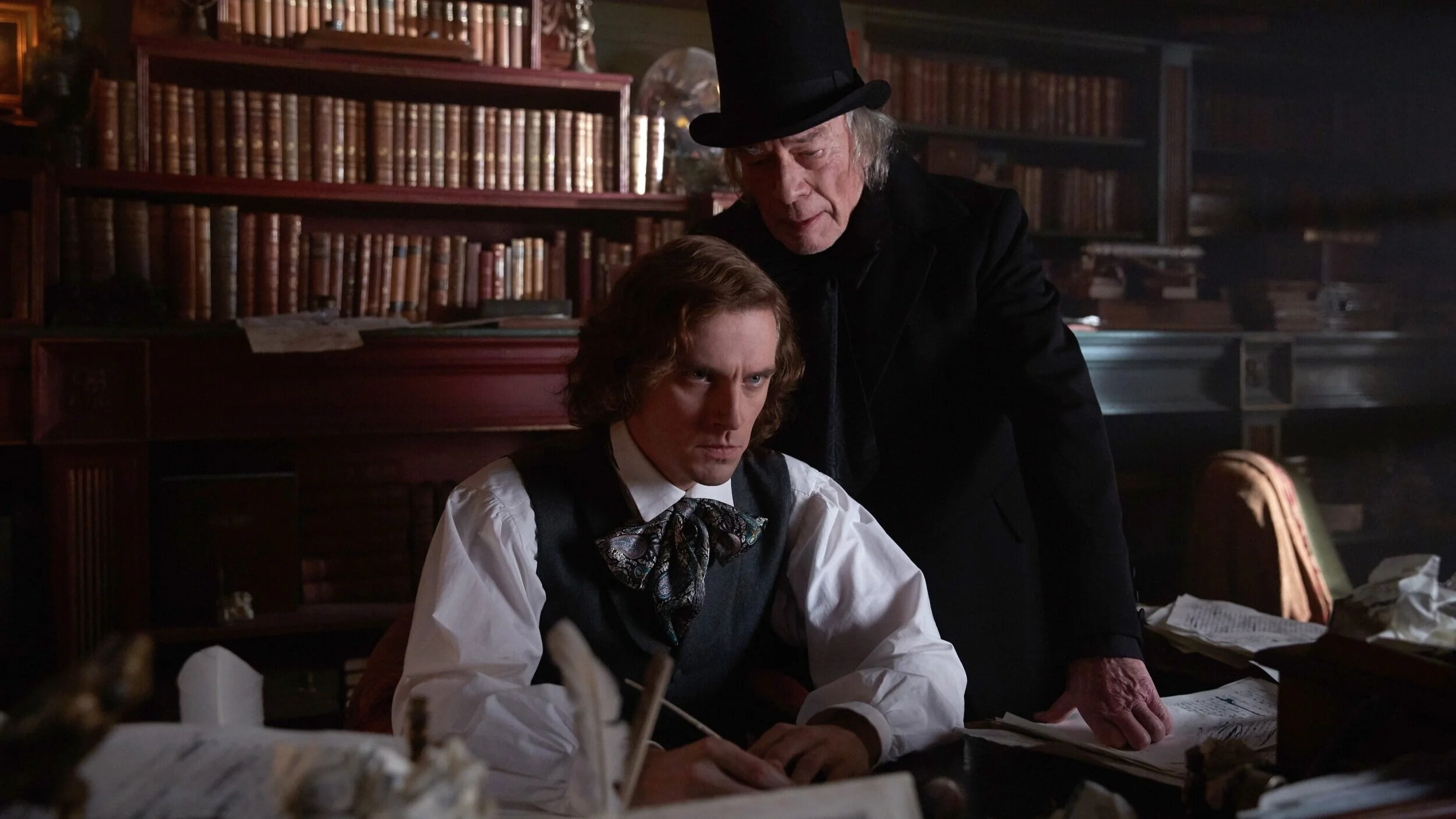The Man Who Invented Christmas
A highly unusual approach to a famous writer that proves to be the Dickens of a mess.
Dan Stevens and Christopher Plummer
It is not unknown for a writer to claim that characters created for a novel took over and dictated how the plot should develop. That may have been the inspiration behind Pirandello's classic play Six Characters in Search of an Author, that moving and subtle drama which found profundity in the relationship between fictional figures and the man who gave them life. Nothing remotely comparable is felt in this adaptation by Susan Coyne of Les Standiford's book about Charles Dickens and the supposed role taken by the characters who appear in A Christmas Carol in the creation of that novel.
The idea here is to show how, after a writer's block brought on by three less successful works in a row, Dickens, who was in need of money, struggled to deliver a new book in time for Christmas. The figure of Scrooge appears to him largely born out of his own imagination but then other figures emerge too, those who will people A Christmas Carol but are all derived from persons around him. These fictional counterparts together with Scrooge himself start to argue about their roles in the novel and how the tale should end. As presented here, this odd concept becomes simplistic in the extreme and comes over as a notion that unhappily exists halfway between the comic and the dramatic and fails to satisfy on either level. It is not helped by the fact that Coyne's dialogue lacks any real period sense to evoke the era, the year being year 1843.
Quite apart from this distant echo of Pirandello, The Man Who Invented Christmas puts forward another idea by taking the relationship between Charles Dickens and his irresponsible father, John, and using it to link Charles Dickens himself with the character of Scrooge. This involves flashbacks to the boyhood suffering of Charles Dickens in the blacking factory when his father was in jail. Then at the film's climax he is able to overcome his anger at his father thus proving that changes of heart are possible and can be applied in the book to create the apt ending which had been eluding him. Meanwhile, this supposed real life echoes the sentimentality of the novel's treatment of Tiny Tim by presenting us with a sweet Irish maid who becomes the victim of the author's harsh words which bring about her dismissal.
It has to be admitted that there is some novelty here backed up by an apt music score from Mychael Danna and production values are reasonable. However, the talented cast headed by Dan Stevens as Charles Dickens have nothing worthwhile to work on in a piece that mixes trite flights of fantasy with an unconvincing interpretation of biographical material. Christopher Plummer as Scrooge and Jonathan Pryce as John Dickens do nevertheless bring something of their authority to their roles, but they are fighting a losing battle given that, as handled here, the concept behind the film emerges as more silly than engaging.
MANSEL STIMPSON
Cast: Dan Stevens, Christopher Plummer, Jonathan Pryce, Justin Edwards, Morfydd Clark, Donald Sumpter, Miles Jupp, Simon Callow, Miriam Margolyes, Ian McNeice, Bill Paterson, Ger Ryan, Anna Murphy.
Dir Bharat Nalluri, Pro Robert Mickelson, Ian Sharples, Paula Mazur, Mitchell Kaplan, Andrew Karpen and Vadim Jean, Screenplay Susan Coyne, based on the book by Les Standiford, Ph Ben Smithard, Pro Des Paki Smith, Ed James Pearson and Stephen O’Connell, Music Mychael Danna, Costumes Leonie Prendergast.
Parallel Films/Rhombus Media/Téléfilm Canada/The Irish Film Board/Mystic Point Productions- Thunderbird Releasing.
104 mins. Ireland/Canada/UK/USA. 2017. Rel: 1 December 2017. Cert PG.


